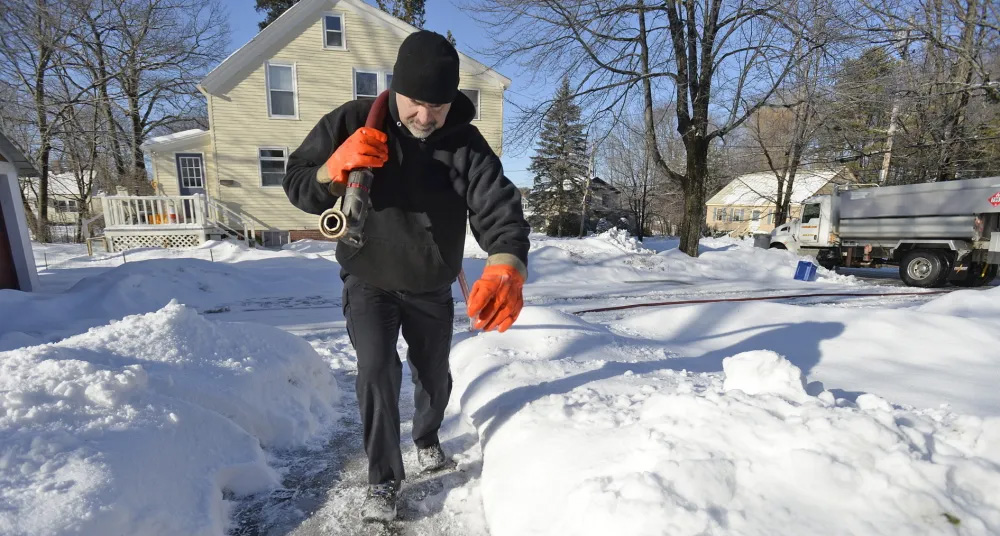Queens Heating Oil: Environmental Benefits and Efficiency Tips for Homeowners
If you live in Queens and rely on Queens Heating Oil to keep your home warm, you’ve likely wondered about its environmental impact. The good news is that today’s Queens Heating Oil is dramatically cleaner and more efficient than what was used even a decade ago.
Today’s Queens Heating Oil: Cleaner and More Sustainable
Ultra-Low Sulfur Queens Heating Oil: The Key Differences
Since 2018, New York State has required all Queens Heating Oil to be ultra-low sulfur – containing no more than 15 parts per million. This means the Queens Heating Oil warming your Astoria apartment or Bayside home now produces over 99% less sulfur dioxide than older fuels, significantly reducing compounds that contribute to acid rain and respiratory problems.
Biofuel Blends in Queens Heating Oil
Many Queens residents don’t realize their heating oil already contains biodiesel—a renewable fuel made from plant oils and recycled materials. These Queens Heating Oil biofuel blends include:
- B5 (5% biodiesel) – now standard throughout much of Queens
- B20 (20% biodiesel) – works in most existing systems
- B50 (50% biodiesel) – used by environmentally conscious homeowners
Forest Hills homeowners who’ve switched to B20 Queens Heating Oil have reduced their carbon footprint without expensive system upgrades, allowing for immediate environmental improvement while using existing equipment.
Environmental Impact of Modern Queens Heating Oil
Benefits for Urban Neighborhoods
For residents in Jackson Heights, Sunnyside, and Woodside, cleaner Queens Heating Oil means:
- Improved air quality for those with respiratory conditions
- Less particulate matter in the environment
- Better overall neighborhood air quality
Medical professionals have noted improvements in winter breathing issues that correspond with the switch to cleaner Queens Heating Oil.
Benefits for Coastal Communities
In the Rockaways and Howard Beach, residents are using higher biofuel blends of Queens Heating Oil to fight climate change. After Superstorm Sandy, many homeowners became more aware of their carbon footprint and switched to B20 Queens Heating Oil as a practical step to reduce environmental impact without major home modifications.
For established neighborhoods like Fresh Meadows and Jamaica Estates, cleaner Queens Heating Oil means:
- Fewer emissions affecting outdoor activities
- Maintaining the character of older homes while reducing environmental impact
- Better air quality for residents of all ages
Queens Heating Oil Efficiency Tips That Save Money
Annual Maintenance
Professional Queens Heating Oil system maintenance pays for itself through 5-10% fuel savings and ensures:
- Complete fuel combustion with fewer emissions
- Early identification of efficiency issues
- Reduced overall consumption
Insulation Upgrades
Homeowners in Kew Gardens who’ve added proper attic insulation have seen Queens Heating Oil bills drop by almost 30%. Simple improvements include:
- Sealing drafts around windows and doors
- Adding adequate attic insulation
- Insulating basement pipes and heating ducts
Smart Thermostats
Jamaica residents using programmable thermostats have reduced Queens Heating Oil usage by 10-15%. These devices automatically adjust temperatures when no one is home or during sleep hours, then warm spaces before you wake or return home—creating a win-win for your wallet and the environment.
The Future of Queens Heating Oil
The Queens Heating Oil industry continues to innovate with:
- Higher biodiesel blends becoming more widely available
- Carbon-neutral options through offset programs
- Integration with renewable technologies
Industry experts predict Queens Heating Oil of 2030 will move toward carbon-neutral home heating through increased renewable content and innovative delivery systems.
How to Choose the Best Queens Heating Oil
To reduce your environmental impact:
- Verify you’re receiving ultra-low sulfur Queens Heating Oil
- Ask suppliers about higher biofuel blend options
- Schedule regular maintenance to ensure peak efficiency
- Address efficiency issues like drafty windows and inadequate insulation
- Consider high-efficiency systems when replacing your current one
The Bottom Line for Queens Heating Oil Users
Today’s Queens Heating Oil is vastly improved from previous generations. By making informed choices about your fuel type, maintaining your system properly, and improving your home’s efficiency, you can reduce your environmental footprint while enjoying reliable warmth through cold Queens winters.
Whether you live in historic Douglaston or modern Long Island City, Queens Heating Oil offers a practical and increasingly sustainable heating solution. It’s an effortless blend of convenience and environmental care—warmth without compromise.
For more information on eco-friendly Queens Heating Oil options for your neighborhood, contact a local heating professional who understands Queens’ diverse communities.
Frequently Asked Questions About Queens Heating Oil
Is Queens Heating Oil more expensive than natural gas?
While Queens Heating Oil can sometimes have a higher per-unit cost than natural gas, modern high-efficiency oil heating systems can help offset this difference. Additionally, homes with existing oil heating systems can avoid the significant expense of converting to natural gas, making continued use of clean Queens Heating Oil economically sensible.
Is Queens Heating Oil bad for the environment?
Today’s Queens Heating Oil is significantly cleaner than in previous decades. Ultra-low sulfur requirements and biofuel blends have dramatically reduced emissions. While no fossil fuel is entirely emission-free, modern Queens Heating Oil—especially higher biofuel blends—represents a much more environmentally responsible option than older heating oil.
How often should I schedule maintenance for my Queens Heating Oil system?
Annual maintenance is strongly recommended for all Queens Heating Oil systems. This regular service typically pays for itself through improved efficiency (5-10% fuel savings) and helps prevent costly emergency repairs during the winter months.
What is biodiesel and how does it work in my Queens Heating Oil?
Biodiesel is a renewable fuel made from plant oils, recycled restaurant grease, and other organic materials. It blends seamlessly with traditional heating oil to create a cleaner-burning fuel. Biofuel blends in Queens Heating Oil are labeled with a “B” number (B5, B20, etc.) indicating the percentage of biodiesel in the mix.


Leave A Comment